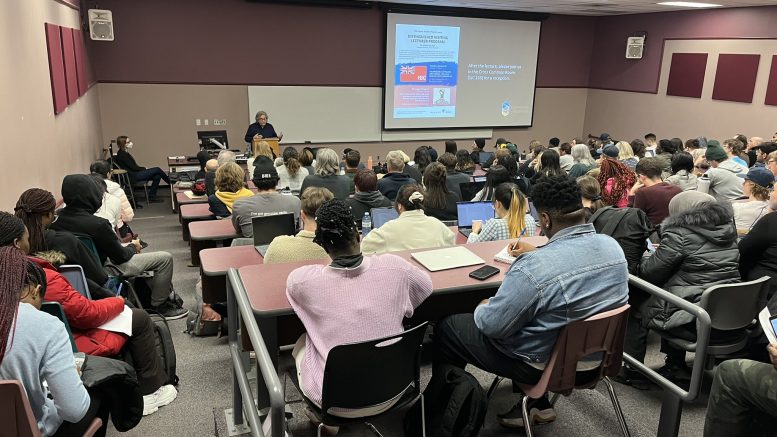The University of Manitoba labour studies department hosted a two-part lecture series on Indigenous political issues and engagement in Canada last week as part of the U of M’s Distinguished Visiting Lecturer Program.
Professor emeritus of Canadian studies at Trent University Bryan Palmer presented the series, holding one talk titled “Colonialism, Capitalism, and Canada, 1500-2023: How the Past is Before Us” on Jan. 30 and another called “Red Power in the 1960s and Now: Situating Indigenous Protest and its Legacies Historically and Politically” on Feb. 1.
The first part of the lecture series at U of M looked at the exploitation faced by various people in Canada, from Indigenous peoples to working class and immigrant Canadians, that came as a result of colonialism and capitalism. The second part of the lecture series focused on the Red Power Movement, a wave of Indigenous activism in the 1960s and 1970s.
The Red Power Movement included a series of protests addressing the mistreatment of Indigenous people across North America, over concerns about education, land rights and other issues.
Palmer highlighted the importance of history in social movements.
“I have always regarded historical scholarship as something that can be useful in current struggles around social justice and transformation,” he said.
He described the Red Power Movement as an “invigorating and exciting explosion of youthful Indigenous militancy,” and described its efforts to form connections with other youth movements as “the kind of thing that needs to be rebuilt.”
He said that reseaching Indigenous protest offered “exciting” explanations on the ways Indigenous people have been “structured” into a position of marginalization and showcased their resilience in continuing “to exist and fight in spite of the incredible effort and energy” put into keeping them in that position.
Palmer said the lectures originated from a Canadian publisher’s request that he write a book on capitalism’s history in Canada, but according to Palmer, “you can’t really do that unless you write about capitalism and colonialism, because the one is integrally related to the other,” he said.
Palmer is currently working on that book, one that he described as “a long history” of Canadian colonialism and capitalism.
“It looks at how colonialism and capitalism were, in some senses, intwined from the very beginning in the emergence of what would become Canada,” said Palmer.
Palmer explained his research on the topic was an attempt to highlight what he called the “common cause” many different people share to “change society,” in terms of issues including working class alienation, poverty, wealth inequality and the oppression of ethnic and sexual minorities.
“As a historian and an academic, if I can write something and publish things that move people to see the necessity of fighting around certain issues then I’ve done my small bit for the moment,” he said.


